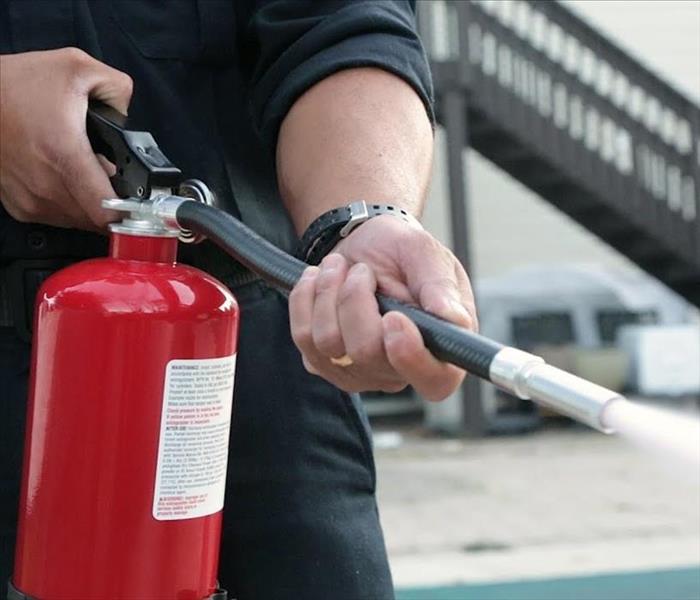What You Need to Know About Fire Extinguishers
7/31/2018 (Permalink)
One important fact that homeowners need to know about fire extinguishers is that they do in fact expire. Fire extinguishers last between 5 and 15 years but they all ultimately expire and become ineffective, no matter what fire-fighting substance they contain. Household fire extinguishers are typically filled with dry chemicals (carbon dioxide or halon) and can lose their charge over time. Extinguishers with compressed gas can leak contents slowly as their seals weaken, while those with ammonium phosphate will solidify over the years, becoming unusable.
Some units can be professionally recharged. Check the expiration of the original charge, read on to get a handle on the age and effectiveness of your fire extinguisher. Locate the paper tag on the fire extinguisher. It may not imply an expiration date, but if the oldest date on that was more than 10 years ago, it may already have lost its ability to fight flames.
Additionally, homeowners should inspect the pressure gauge at the top. If the needle is within the green area, it should still work fine. A needle in the red or white area indicates that it requires service. Older models usually have no gauge, which means it would be wise to take it to a professional for testing and, if necessary (and possible), recharging. A professional recharge typically runs between $15 and $20, a bargain compared to a new extinguisher, which will likely cost $100 to $200.
Store a fire extinguisher in a clean, indoor location can help extend its life. Exposure to sun, UV radiation, wind, or rain can cause corrosion, rust, and deterioration. Excessively dusty or dirty environments can hamper the device’s ability to function properly. If the canister is dented or bruised, or if the tamper seal and pin are missing, there’s a possibility that it might explode unprompted. Examine the entire unit and if it’s not in good shape, properly dispose of it without delay.
Source: www.bobvila.com






 24/7 Emergency Service
24/7 Emergency Service